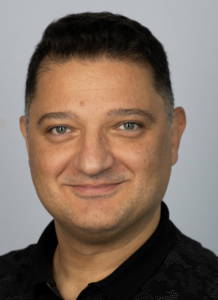Life Sciences
Cresset® Creates New Vice President Role to Lead their Artificial Intelligence (AI) Strategy 17th April 2024
 Cresset an innovative provider of solutions for CADD, DMTA efficiency, and contract research, has expanded its senior leadership team with the appointment of Cambridge Scientist Dr. Mutlu Dogruel to the newly created position of Vice President for AI Solutions.
Cresset an innovative provider of solutions for CADD, DMTA efficiency, and contract research, has expanded its senior leadership team with the appointment of Cambridge Scientist Dr. Mutlu Dogruel to the newly created position of Vice President for AI Solutions.
Dr. Dogruel joins the team at Cresset from Microsoft, one of the largest technology companies in the world, where he was responsible for empowering organisations with scalable AI solutions, NLP, computer vision, bioinformatics, data analytics as well as MLOPs best practices using cloud technology.
He held various positions at the company including Pharma GenAI Lead Architect and Senior Cloud Solution Architect in Data and AI, and previously worked for HP and software company Eagle Genomics. Dr. Dogruel has a PhD in Bioinformatics from the University of Cambridge and a proven track record in AI, applying large language models in a wide variety of contexts at several leading pharmaceutical companies.
In this new role with Cresset, he will drive Cresset’s AI strategy across the CADD and workflow applications, as well as the Discovery CRO business.
During its 20-year history and experience in the industry, Cresset has extensively utilised machine learning and AI methods in both its software and CRO services. Combining this expertise with Mutlu’s domain knowledge will enable more clients to benefit from the application of large language models and other AI methods in their research programs.
Rob Scoffin, CEO of Cresset said “The marriage between AI techniques and pharmaceutical science has unleashed a new era in drug discovery and development. This is an exciting time of growth for Cresset, and we are delighted that Mutlu is joining us to spearhead our AI initiatives.”
Dr. Mutlu Dogruel, Cresset’s Vice President of AI Solutions added “I am thrilled to join the Cresset Group as Vice President of AI. My commitment lies in spearheading our AI initiatives and leading the overall AI strategy. AI, including generative models, will empower medicinal chemists to explore new avenues, optimise drug candidates, and accelerate scientific breakthroughs. However, it won’t be solely AI; the future of drug discovery lies at the intersection of AI, good quality data, right tooling and human expertise.”


